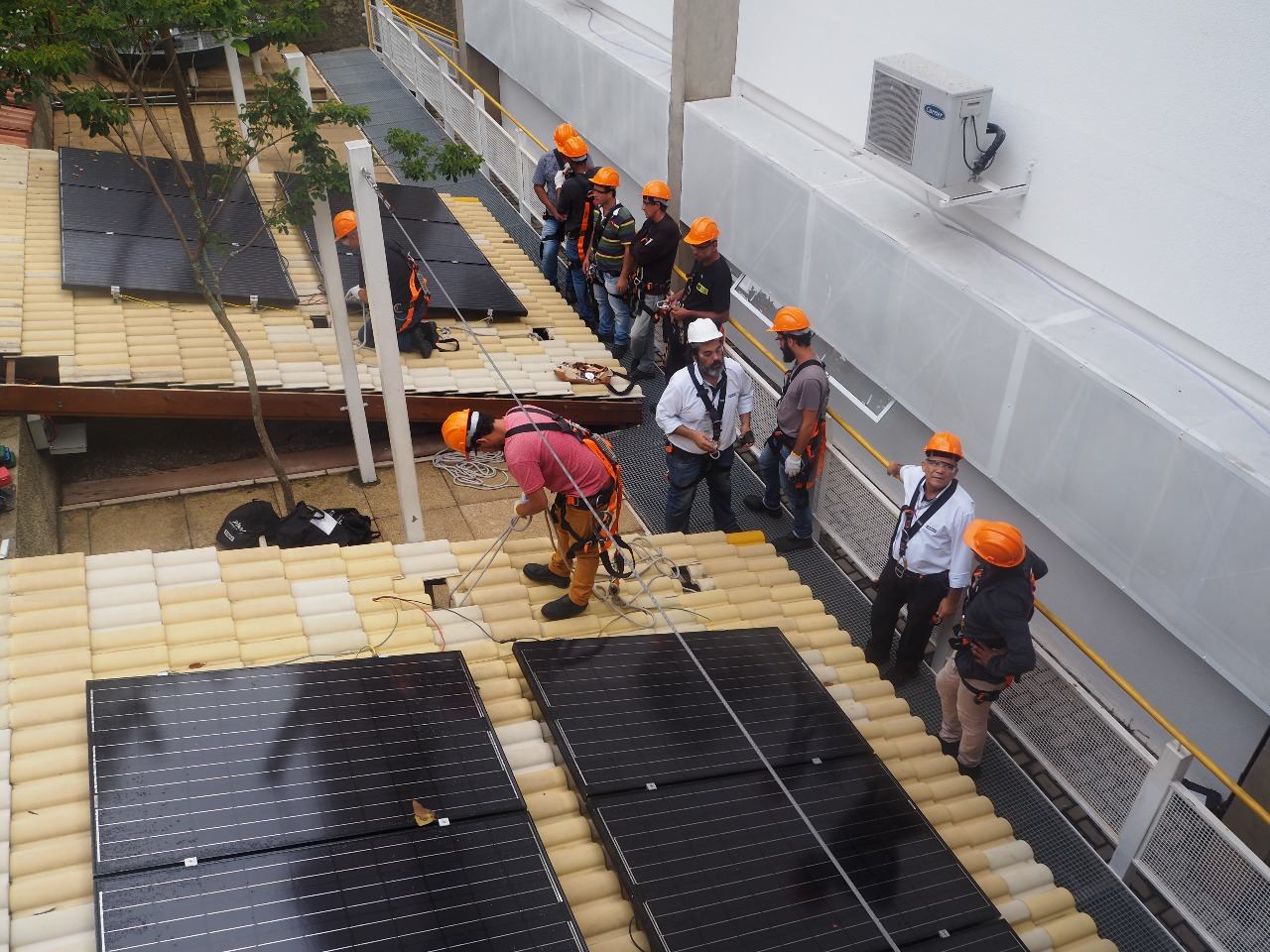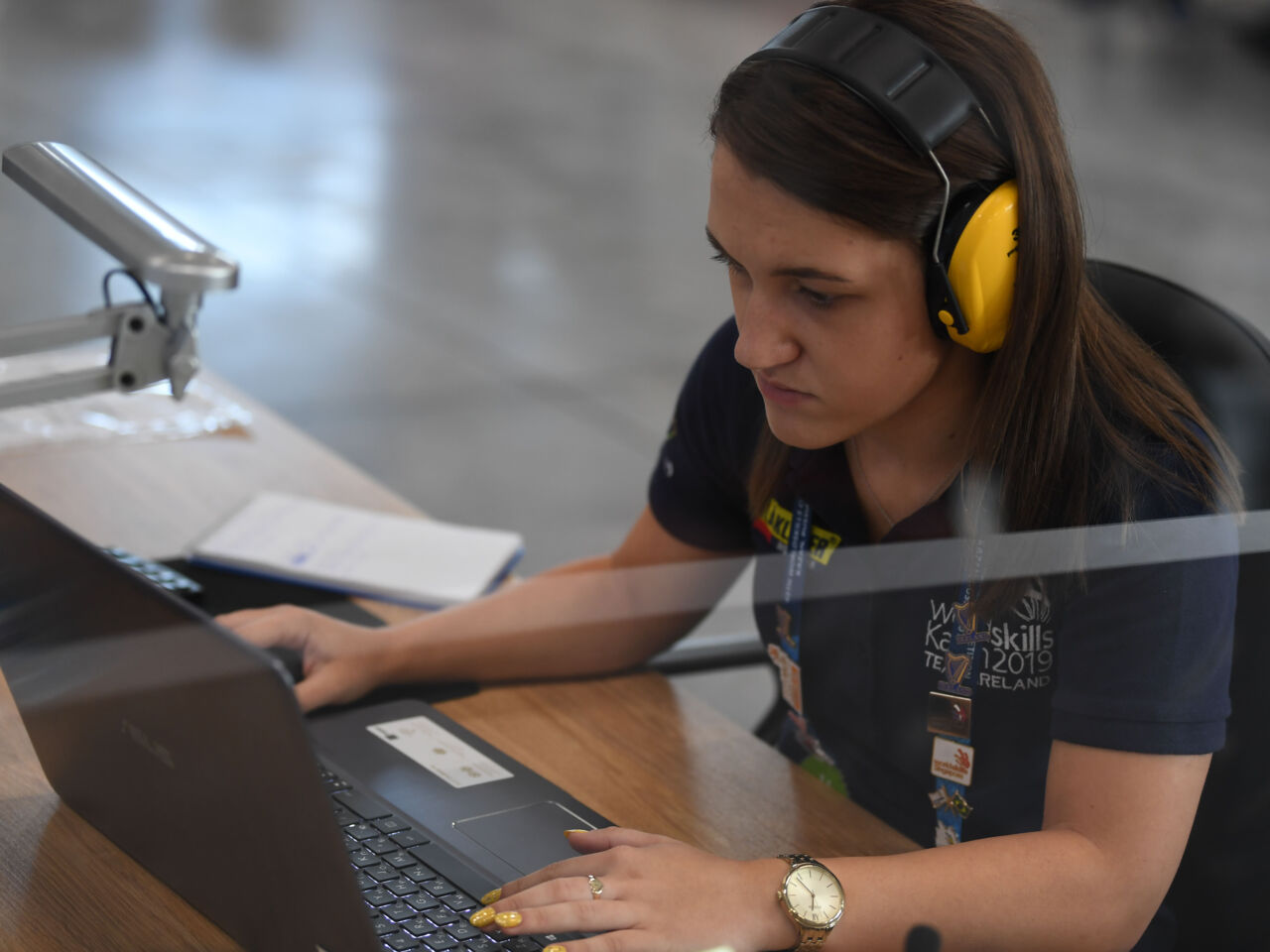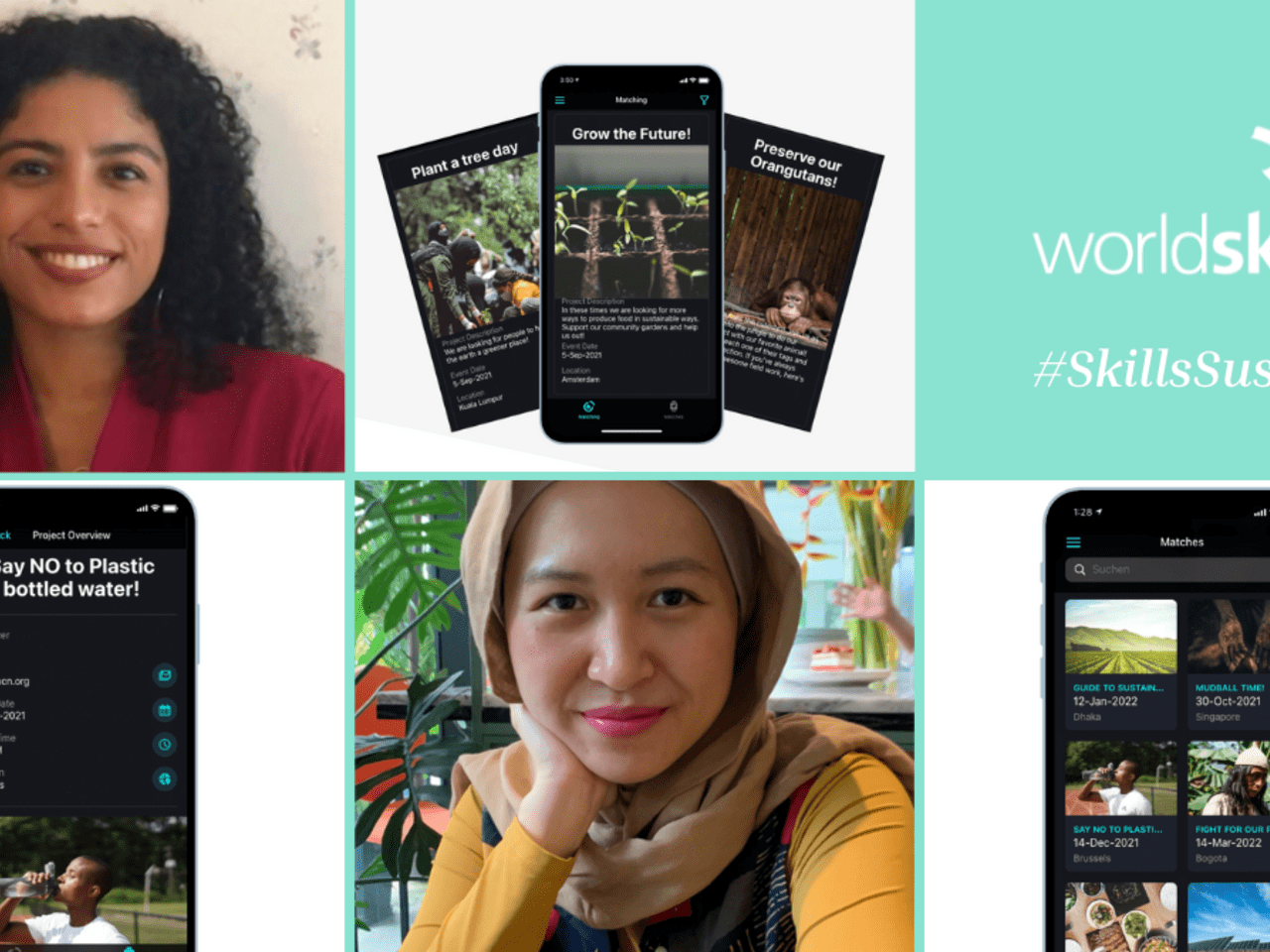22 April 2022
#SkillsSustain: “We must encourage the development of new renewable energy solutions”
A new skill competition, Renewable Energy, will debut at WorldSkills Shanghai 2022 later this year highlighting a vital sector which faces major skill gaps.

The skill Renewable Energy will make its debut at a WorldSkills Competition later this year in Shanghai. Capable of supplying two-thirds of the global energy demand, renewable energy is crucial to reducing greenhouse emissions and limiting the average global temperature increase below 2 °C.
Sustainable energy and energy efficiency are also central to the success of the United Nations Agenda 2030 and Sustainable Development Goal 7 ⎼ ensuring access to affordable, reliable, sustainable, and modern energy for all.
“This new skill competition will help show industry, society, and governments the importance of renewable energy development and evolution. Research and development of new solutions must be encouraged in every country, especially in developing countries, to help create an environment of specialized professionals that will be needed by the industry,” says Marcelo Ramos, Skill Competition Manager, from Brazil.
Marcelo, who has a background in electrical engineering, started working in this sector in 2012, after Brazil passed national regulations that eased and accelerated the development of sustainable energies.
The country, which already largely relies on hydropower for its electricity demands, is seeing historical records of solar and wind energy power plant expansion. Last year, the share of solar energy in Brazil’s energy mix reached 6.9% and wind energy, 10.9%.
A Renewable Energy and Energy Efficiency instructor at SENAI, the country’s National Service for Industrial Training, Marcelo became acquainted with WorldSkills and suggested the inclusion of the skill for 2022.
The sector faces a major skill gap, not only in Brazil but around the world. Nonetheless, Marcelo points out that TVET institutions and universities are doing an excellent job to develop these skilled workers. “There is also the effort of international technical cooperation from countries like Germany, and prioritizing support to increase participation by women in the sector,” he adds.
Skilled workers will have to continuously upskill to keep up with the technological evolutions of industry. According to Marcelo, some of the areas that will require attention will be new sources and applications of renewable energy, or the control of demand (from sources and loads), which will be crucial to the sector. The development of green hydrogen will also have a key role in decarbonization of our society.
“We really must work hard and in several different areas to reach these objectives. I hope we can gain extra time to develop new technologies and processes to revert the already visible effects of climate change,” he says.
“I believe in the human capacity to be creative and find solutions for our problems. The difficult part is always to make everyone work together.”
Related stories
-

Earth Day 2023: “Every skill, Competitor and Member plays its own part in helping WorldSkills become a more sustainable event”
21 April 2023
-

#SkillsSustain: Upcycling jeans to save the oceans
29 April 2022
-

#SkillsSustain: Fighting deforestation one briquette at a time
27 April 2022
-

#SkillsSustain: “We need to ask ourselves how our skills can impact climate change”
21 April 2022